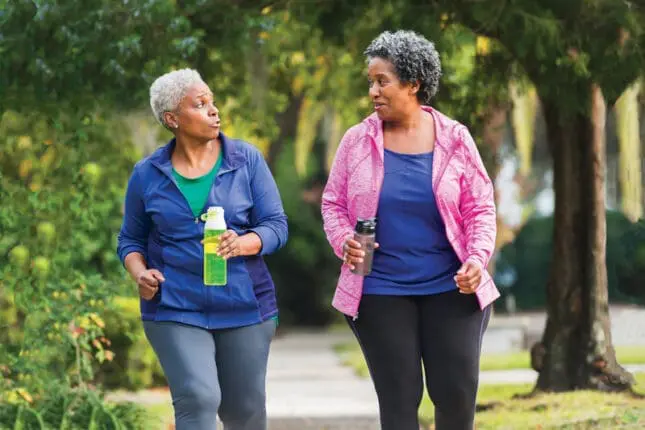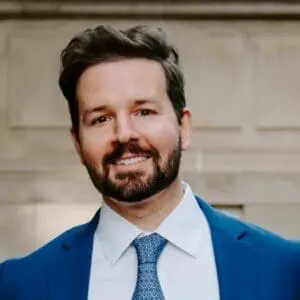Think about the last time you blew out the candles on your birthday cake. Sure, another year had come and gone, but did you take the time to reflect on the experience of growing older? Or did the thought of another year having passed dissipate as quickly as the smoke from your candles?
If it’s the latter, that’s not surprising. The truth, at least for many Americans under the age of 65—that’s one in seven U.S. adults—is that we don’t think much about aging, especially those of us still carrying around vestiges of what the Journal of Pediatric Nursing has called the “adolescent perception of invincibility.”
And when we do think about growing older as adults, we often put it in a negative light. That’s according to psychologist Becca Levy, a professor of epidemiology at Yale University’s School of Public Health, who’s spent more than two decades studying the effects of negative age beliefs. Ageism, she says, remains a mostly ignored public health crisis, which can make all of us—old and young alike—psychologically and physically sicker. In fact, her research shows that people who hold negative attitudes toward aging can shave a whopping 7.5 years off their lifespan!
In April, Levy released her first book, Breaking the Age Code: How Your Beliefs about Aging Determine How Long and Well You Live, which examines our tendencies to revert to explicit and implicit negative messaging about growing older and suggests what we can do about it. The book caught the attention of The New York Times, as well as multiple public health authorities, including professors and researchers at Columbia University’s School of Public Health, Harvard Medical School, and Weill Cornell Medical Center. William Haley, chair of the APA’s Committee on Aging, called Levy’s book “a manifesto to inspire us to fight against the scourge of ageism and its negative effects on older adults and our society.”
In this interview with Networker senior editor Chris Lyford, Levy discusses the research findings that surprised her, how our views on aging affect our mental and physical health, and what all of us—therapists and non-therapists alike—can do to combat ageism.
Psychotherapy Networker: How did you become involved in studying attitudes toward aging?
Becca Levy: With an undergraduate degree in psychology, I got my first job out of college at the McLean Hospital, a psychiatric facility affiliated with Harvard Medical School, and its only available entry-level position for a mental health worker was on a geriatric ward. At first, I was hesitant to take a job I thought would be really depressing. I had a mental image of older people being abandoned without proper care. I had all these negative thoughts about what I’d encounter, but I didn’t have another offer, so I took the position and wound up loving the work. Many older residents benefited greatly from mental health treatment, and I watched them recover and be integrated back into their communities.
I saw social workers, psychiatrists, psychologists, psychopharmacologists, and occupational therapists collaborate to treat older patients. It made me realize how multidisciplinary and multifactorial aging health can be. It helped me see promise in the field. After a year at McLean, I decided to apply to a psychology graduate program to further my work in aging health.
PN: What did you find in your research that surprised you?
Levy: We’ve conducted several studies to see if our beliefs about aging affect our mental health—experimental, cross-cultural, and longitudinal studies, implementing various methodologies. We found that stereotypes about aging can significantly influence mental health in later life. Older people who’ve taken in more positive age beliefs tend to have lower levels of the stress biomarker cortisol, whereas those who’ve taken in more negative age beliefs tend to have elevated levels of it. Our studies also showed that negative age beliefs can increase the likelihood that older individuals will develop depression, anxiety, PTSD, and other psychiatric illnesses.
PN: How do you assess whether people hold negative age beliefs?
Levy: One of the ways is by asking, “What are the first five words or phrases that come to mind when you think of an older person?” People with negative age beliefs often respond with something like “senile.” People with positive age beliefs often respond with something like “wise.” We administer surveys with questions like, “How much do you agree or disagree that older people are a burden to society?” Somebody who agrees will be rated as having a more negative age belief.
PN: You’ve traveled quite a bit. Have you noticed any differences in how other cultures regard their elders?
Levy: Yes! When I was in graduate school studying psychology, I went to Japan on a National Science Foundation Fellowship. My goal was to understand why the Japanese had the longest lifespan in the world. And I noticed how different their age beliefs were from ours, how much more older people were celebrated by society and integrated into it.
Cultures with more positive age beliefs tend to be more intergenerationally integrated, so they offer more opportunities for people of different ages to interact. These cultures also have a strong historical linkage to beliefs that honor elderly people. Children exposed to more positive age beliefs tend to reinforce those beliefs when they have children of their own. It becomes a cycle within the culture.
PN: You argue that ageism is a public health crisis, but that we don’t give it the same attention as racism and sexism.
Levy: It’s an observation The World Health Organization has made in saying that ageism is one of the most prevalent and accepted forms of prejudice today. We know it can operate without our awareness and that it’s structural, but I think we’re getting close to a tipping point, where people are aware enough of it to demand a more age-just society. Several organizations, including the Gerontological Society of America and the American Psychological Association, have declared that ageism is a societal problem, and I’ve been getting a lot of emails from readers of my book who are very angry and want to do something about it, so I see growing momentum for overcoming it.
PN: Your book is a call to action. What, specifically, can we do to combat ageism?
Levy: My goal in writing the book was to help bring about change on a societal level, to help reduce structural ageism. Again, I see signs that an age-liberation movement is beginning to happen, but until that’s more apparent, it’s important to give people skills to navigate the negative beliefs that we encounter in everyday life and to strengthen the positive ones. In the book, I present 14 evidence-based tools that people of any age can use to do this, and I offer a blueprint for overcoming structural ageism.
One exercise people can do is age-belief journaling. Over a week, write down all the messages about aging that you encounter, whether they’re on social media or in a magazine or a conversation you overhear at the supermarket. Whenever you hear something said about aging, write it down, along with whether it’s a positive portrayal or a negative one. If it’s a negative one, think about how it can be transformed into something more positive.
Another part of this exercise is to note the absence of older people in conversations or in different media. If everyone in a movie you see is under 30, write that down, because we know that the absence of members of a group, including older people, can lead to their marginalization. All these exercises are for the purpose of raising awareness. In the book, I present the most common negative stereotypes about aging, the science that debunks them, and the strengths of aging associated with these domains. This can also give people ammunition to combat negative age beliefs.
PN: How do you feel about the mental health field’s understanding of ageism and its work with older adults? Are therapists on the right track? or is there something they need to be doing better?
Levy: I think we need to have more opportunities for therapists-in-training to learn about aging mental health and how the strengths that can come with aging can be integrated into treatment. Some studies show considerable numbers of healthcare professionals think depression is a normal part of aging—which it’s not! They need to know that they can play a major role in bringing about positive change.
PHOTO © ISTOCK/KALI9
Chris Lyford
Chris Lyford is the Senior Editor at Psychotherapy Networker. Previously, he was assistant director and editor of the The Atlantic Post, where he wrote and edited news pieces on the Middle East and Africa. He also formerly worked at The Washington Post, where he wrote local feature pieces for the Metro, Sports, and Style sections. Contact: clyford@psychnetworker.org.













